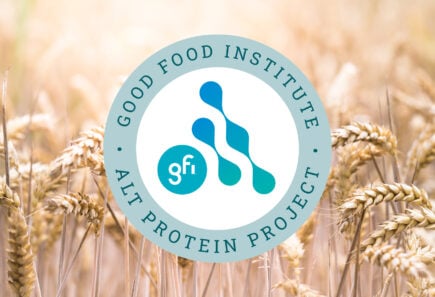
Los Angeles Climate Week
GFI is heading to Los Angeles Climate Week! This event brings together climate organizations, policymakers, innovators, companies, and changemakers from LA and beyond on cutting-edge climate change solutions.

GFI is heading to Los Angeles Climate Week! This event brings together climate organizations, policymakers, innovators, companies, and changemakers from LA and beyond on cutting-edge climate change solutions.

Alternative proteins play an essential role in meeting global climate goals. Learn more about what you can do to help change how meat is made.

The future of food is a key part of the future of climate action. San Francisco Climate Week brings together innovators, policymakers, and business leaders to explore the latest solutions in sustainability. This weeklong series of events highlights breakthroughs in climate technology, policy, and corporate responsibility—including the role of food in reducing emissions.
The future of food is in focus. Join us for a special screening of Wild Hope: Mission Impossible, an eye-opening film exploring plant-based solutions and the innovations shaping our food system. The event will feature a post-screening discussion with experts leading the charge in sustainable food, including GFI’s Pepin Andrew Tuma.

GFI's Madeline Cohen spoke on the unconstitutionality of cultivated meat bans in this NYT piece about state-level cultivated meat bans and why some ranchers, red states, and meat industry members oppose them.
Don’t miss Bruce Friedrich, GFI’s founder and president, as he takes the stage on Saturday, April 12, at 9:15 AM to discuss how alternative proteins can help build a more sustainable, just, and secure food system.

Join this webinar to learn how Canada is driving the cultivated meat forward through collaborative efforts across academia, industry, government, and the nonprofit sector.
Don’t miss Maille O'Donnell, GFI’s senior policy specialist for public investment and industry, on the main stage as she unpacks how smart policies can drive a more sustainable, fair, and resilient food system.

Join our upcoming Business of Alt Protein webinar exploring how individuals can advance plant-forward initiatives in government.

Students play a pivotal role in building the alternative protein ecosystem. Explore how you can start a student group at your university to accelerate the global transition to the future of food.